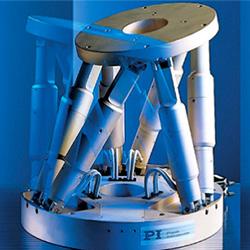Kuka Showcases Robotic Demos at TechCenter Grand Opening
The Next Big Step for AI? Understanding Video
NVBots Sold to Ohio Manufacturer as 3D Printing Interest Grows
Stanley Black & Decker To Open Advanced Manufacturing Center of Excellence in Downtown Hartford
The Industrial IoT Risks You Must Not Ignore in 2018
New design gives 3D printers a 10x speed boost
What We Can Learn From the Second Life of Google Glass
SCADAfence Secures $10 Million in Funding to Protect Smart Manufacturing and Critical Infrastructure Networks from Cyber Attacks
VTT: Five percent of spare parts could currently be stored in digital warehouses.
Emerson sweetens bid for Rockwell Automation to $29 billion
Can US Boost Manufacturing 25% By 2025?
Test Drive Watson IoT in Factory Simulation
3D Printer Farms And Robotics Start Pointing To Future Of Manufacturing
Britain must embrace 'Industry 4.0' as robots can create thousands of jobs, says report
3D Systems outlines additive manufacturing strategy, aims for turnaround
Records 856 to 870 of 1282
First | Previous | Next | Last
Featured Product

PI USA - High-Speed Hexapod for Nanopositioning
Manufacturing and Automation - Featured Company

